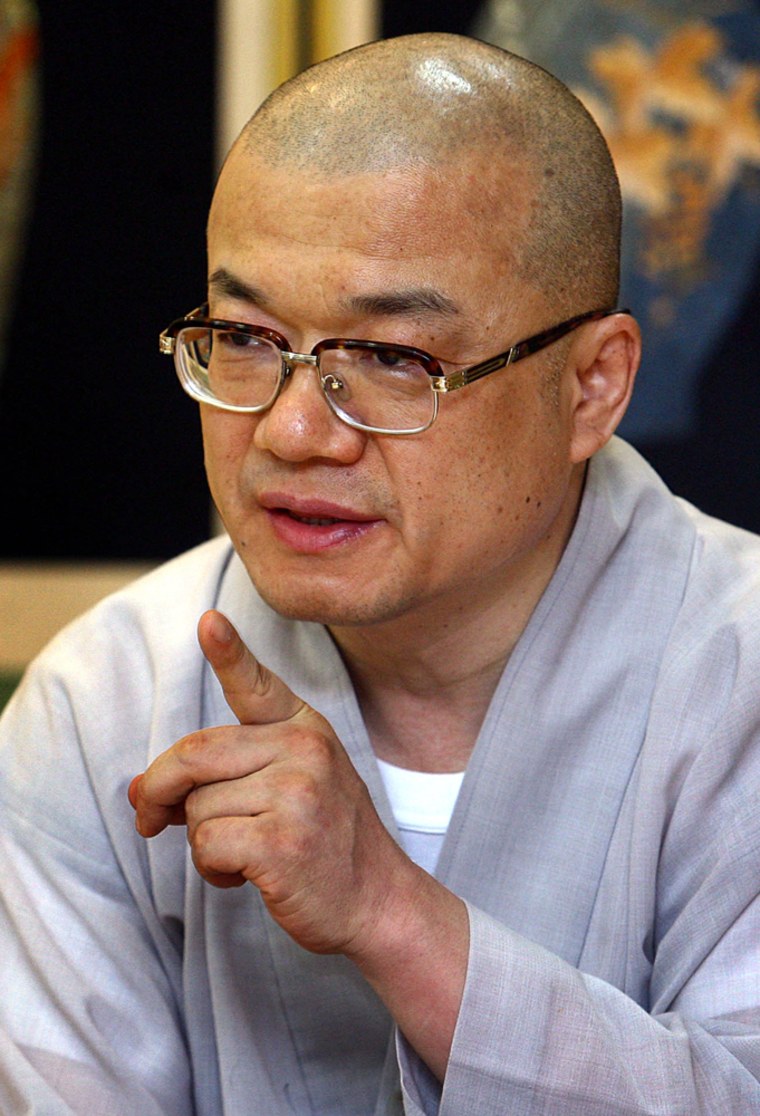She was an up-and-coming South Korean curator nicknamed the “art world’s Cinderella” with a doctorate from Yale on her resume.
That was before Shin Jeong-ah’s academic credentials were revealed as false, sending her into hiding and sparking a wave of revelations of faked diplomas that are shaking up South Koreans in all walks of life — professors, actresses, a cartoonist and even a Buddhist priest.
Prosecutors are investigating and universities and companies are running sweeping background checks, while other public figures are hastily correcting “slip-ups” on their resumes.
The scandal is also prompting a renewed look at South Korea’s obsession with titles rather than merit, and the difficulties faced by a society rapidly modernizing while still steeped in Confucian values of scholarship and hierarchy.
In the latest revelation, singer-songwriter Joo Young-hoon’s radio and television gigs were canceled last week after his agent revealed that Joo had lied on air by claiming he was a graduate of George Mason University.
Scandal started with art curator
The affair began last month after 35-year-old Shin was named joint artistic director of South Korea’s 2008 Gwangju Biennale, the youngest such appointee chosen by the prestigious arts festival.
But then rumors began circulating questioning Shin’s educational background, which included bachelor’s and master’s degrees from the University of Kansas and a doctorate from Yale.
A committee at Dongguk University, where she was an associate professor of art history, concluded that her entire educational resume was faked. She was alleged to have copied her purported Yale doctoral dissertation from a well-known 1989 work, and to have dropped out of the University of Kansas after three years without earning a degree.
Shin has insisted her Yale degree is real and has gone to the United States to prove her claims. Prosecutors plan to investigate her on charges of forgery and obstruction of business affairs, but their probe has been hindered because Shin has been out of the country since July 16 — and her whereabouts remain unknown. Yale’s public affairs office told The Associated Press that Shin never attended the university, while University of Kansas spokesman Todd Cohen said:
“She did attend KU, she just didn’t graduate.”
Actress, priest also admit forgeries
Meanwhile, since the Shin affair broke, hardly a day has passed without other prominent citizens coming forward to admit faked credentials or valueless college credentials, often American.
They include Lee Chang-ha, an architect and a lecturer at Kimcheon Science College, who claimed to have attended New Bridge University in Los Angeles as an undergraduate from 1992 to 1996, though that school only started its undergraduate program in 1995. He confessed to his lie in an e-mail to local media.
Theater actress Yoon Suk-hwa, known as South Korea’s Meryl Streep, tearfully confessed at a news conference to lying for more than 30 years about having a diploma from New York University — when she had only taken several courses at City University of New York.
Respected Buddhist priest Ji-gwang also told reporters that he never attended prestigious Seoul National University as he had claimed.
Author blames S. Korean culture
Cheong So-bok, author of a recent book examining contemporary Korean society, blames conflicts between tradition and speedy development.
“Rapid modernization in recent decades clashing with traditions and Confucian beliefs has created an ethical void that fails to identify individuals as themselves — only by their labels,” he said.
Chung Jin-Soo, a theater professor at Sungkyunkwan University in Seoul, said the problem shows South Koreans need to focus more on merit.
“We need a set of fair-game rules that prevent academic credentials from being the sole judging criteria,” he said. “The vanity pervasive in Korean society leading to individuals exaggerating their academic credentials — this must stop.”
